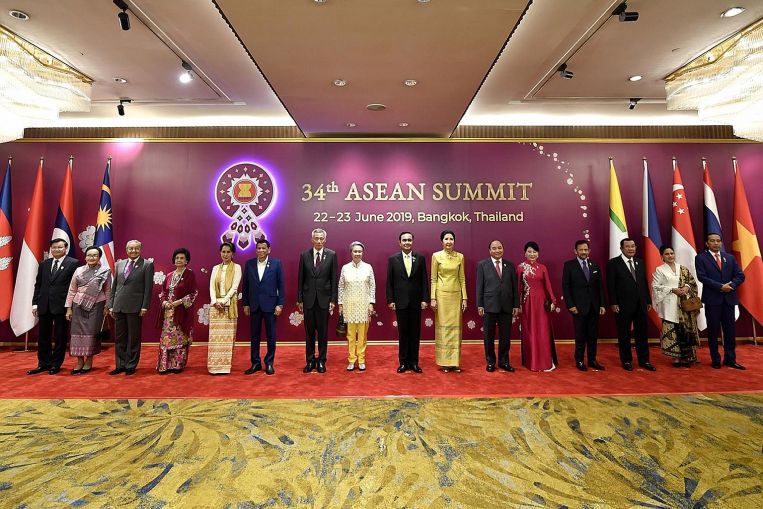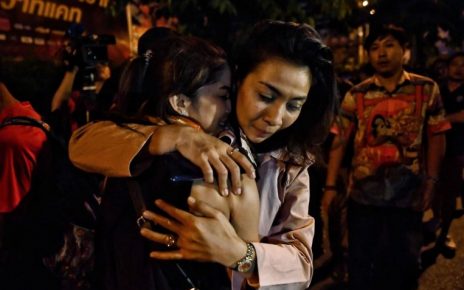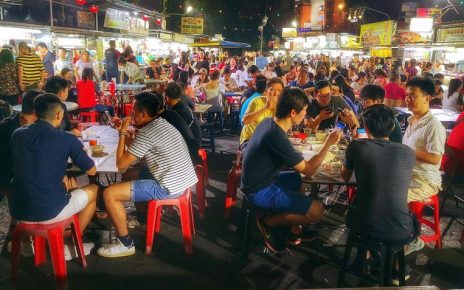
A speedy conclusion to negotiations for the Regional Comprehensive Economic Partnership (RCEP) will signal Asean’s commitment to the global trading system, Singapore Minister for Trade and Industry Chan Chun Sing said yesterday during a special meeting among Asean economic ministers on the proposed trade pact.
In a Facebook post uploaded after the meeting, he wrote: “The Asean member states agreed on the importance of concluding the RCEP negotiations by the end of this year.”
The proposed trade pact includes Asean plus India, China, Japan, South Korea, Australia and New Zealand, which collectively are responsible for a third of the world’s economic output.
“I also highlighted that against the current global backdrop of ongoing trade tensions and economic uncertainties, an expeditious conclusion of RCEP will send a strong message of Asean’s commitment to uphold the multilateral and global trading system, and provide reassurance to the business community,” wrote Mr Chan.
Talks on the trade pact have been taking place since 2013 but reports say negotiations have slowed due to India’s reluctance to lower tariffs for fear of being flooded with Chinese imports.
As of November last year, only seven of RCEP’s 18 proposed chapters have been finalised.
Beijing, in response, has floated the idea of an alternative trade deal that will leave India out of the picture, and comprise only Asean, China, Japan and South Korea.
For years since its inception, the RCEP, that includes China, was seen as a rival to the United States-led Trans-Pacific Partnership (TPP), another proposed trade pact.
But then newly elected US President Donald Trump withdrew American involvement in the TPP in 2017 and began instead scrutinising US trade deficits.
This has now grown into a trade war between the US and China, with both sides imposing punitive tariffs on each other’s goods. This in turn has dragged down regional growth prospects.
In his Facebook post, Mr Chan also said that Asean, with further integration, could “seize opportunities for growth together, and bring about mutual benefits to our businesses and people”.
Meanwhile, Singapore Foreign Minister Vivian Balakrishnan also held discussions with his Asean counterparts yesterday.
The foreign ministers “had an engaging and candid discussion on the situation in Rakhine state” over dinner on Friday evening, Dr Balakrishnan posted on Facebook.
Some 700,000 Rohingya Muslims who fled a 2017 military crackdown in Myanmar’s Rakhine state are still languishing in refugee camps in neighbouring Bangladesh.
They are viewed as illegal immigrants by many Myanmar people.
None of the Rohingya in Bangladesh have been officially repatriated so far amid concerns over their fate when they return.
Hostilities have also flared up between the Myanmar military and the Arakan Army, an ethnic Rakhine armed group.
On Thursday, Myanmar’s Ministry of Transport and Communications ordered all telecommunications companies to suspend mobile Internet traffic in nine townships in Rakhine and Chin states – the areas most ridden by conflict.
The Rohingya issue was raised during the foreign ministers’ discussion yesterday, when Malaysian Foreign Minister Saifuddin Abdullah called for those responsible for the crisis to be brought to justice, according to a tweet by his ministry.
Mr Saifuddin further said that the repatriation process must include citizenship for the Rohingya.
Thai Foreign Minister Don Pramudwinai, meanwhile, told reporters that the repatriation will be “quick”.
“Myanmar knows this process is being watched by everyone,” he was quoted as saying by Agence France-Presse news agency.
Dr Balakrishnan wrote on Facebook that the foreign ministers also discussed “what Asean hopes to see in regional architecture”.
“We look forward to the leaders’ adoption of our outlook,” he wrote.
By the end of the Asean Summit today, leaders of the member states are expected to endorse a framework for cooperation across the Indo-Pacific region.
Thailand’s foreign ministry also said that Asean was making good progress on the negotiating text of the Code of Conduct for the disputed South China Sea and will likely have the first draft for reading by the end of this year.



